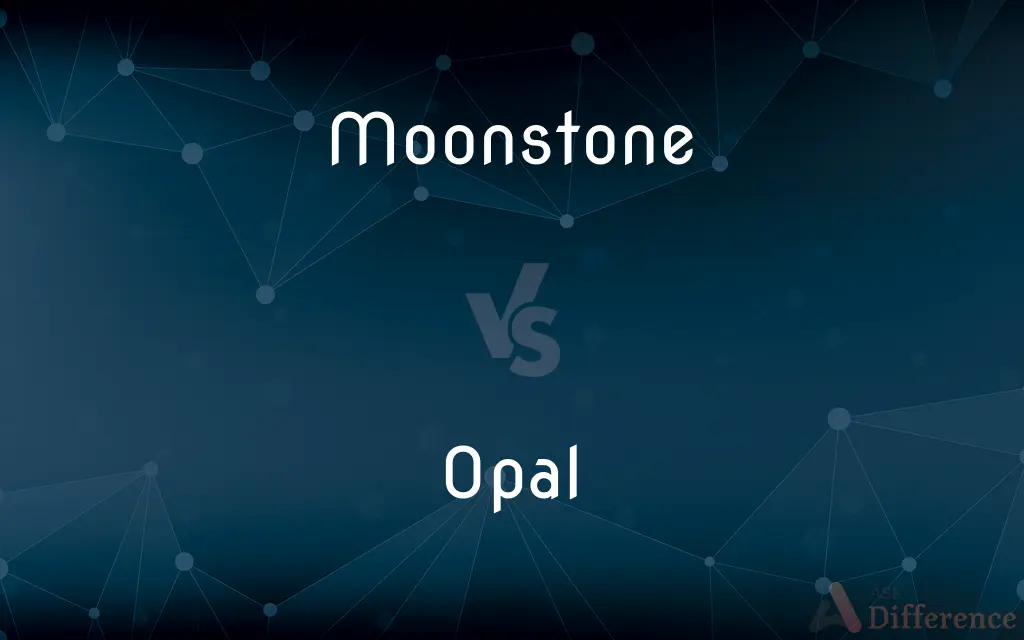Moonstone vs. Opal — What's the Difference?

Difference Between Moonstone and Opal
ADVERTISEMENT
Compare with Definitions
Moonstone
A variety of feldspar valued as a gem for its pearly translucence.
Opal
Opal is a hydrated amorphous form of silica (SiO2·nH2O); its water content may range from 3 to 21% by weight, but is usually between 6 and 10%. Because of its amorphous character, it is classed as a mineraloid, unlike crystalline forms of silica, which are classed as minerals.
Moonstone
(mineral) A translucent gemstone, an orthoclase feldspar, that has a pearly lustre.
Opal
A gemstone consisting of a form of hydrated silica, typically semi-transparent and showing many small points of shifting colour against a pale or dark ground
A large opal surrounded by small diamonds
An opal ring
Moonstone
A nearly pellucid variety of feldspar, showing pearly or opaline reflections from within. It is used as a gem. The best specimens come from Ceylon.
ADVERTISEMENT
Opal
A mineral of hydrated silica.
Moonstone
A transparent or translucent gemstone with a pearly luster; some specimens are orthoclase feldspar and others are plagioclase feldspar
Opal
A gemstone made of this mineral, noted for its rich iridescence.
Opal
(mineral) A mineral consisting, like quartz, of silica, but inferior to quartz in hardness and specific gravity, of the chemical formula SiO2·nH2O.
Opal
(gemology) A precious gem, an iridescent gemstone found in the opal-silica mineral substrate (potch)
Opal
A colloquial name used in molecular biology referring to a particular stop codon sequence, "UGA."
Opal
Any of various lycaenid butterflies of the genus Nesolycaena.
Opal
A mineral consisting, like quartz, of silica, but inferior to quartz in hardness and specific gravity.
Opal
A translucent mineral consisting of hydrated silica of variable color; some varieties are used as gemstones
Share Your Discovery

Previous Comparison
Hit vs. Hurt
Next Comparison
Recruitment vs. Selection













































